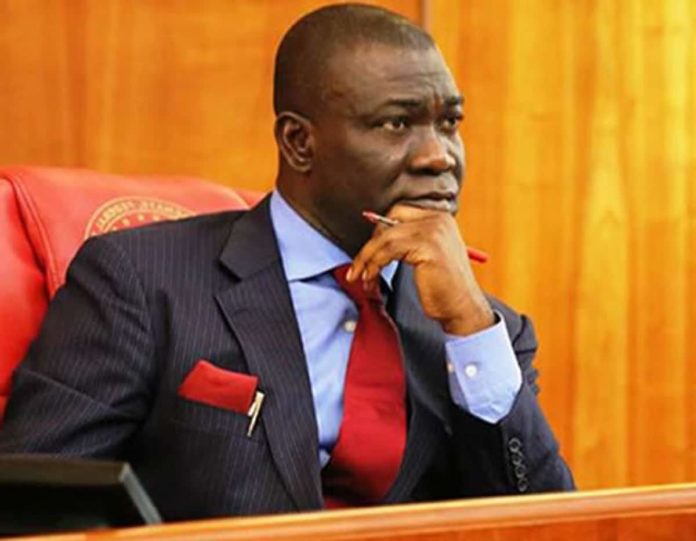Unless Nigeria does away with executive legislation through Executive Order, the country may be heading towards authoritarianism and possible dictatorship, former Deputy President of the Senate, Senator Ike Ekweremadu, has said.
Ekweremadu stated this while delivering a paper on “Executive Order and Democratic Governance” at the ongoing 60th Conference of the Nigerian Bar Association, NBA, in Abuja on Wednesday.
“Democracy envisages the division of governmental powers into three different arms, each with distinct powers and responsibilities clearly provided for in a country’s grundnorm. The philosophy behind this compartmentalisation of powers is the need to preserve the liberty of citizens and prevent abuse and tyranny by one arm of government over the other.
“Section 4 of the 1999 Constitution provides that the legislative powers of the Federal Republic of Nigeria shall be vested in the National Assembly. The National Assembly is empowered to exclusively legislate for the peace, order, and good government of the federation or any part of it with respect to any matter on the exclusive legislative list in the second schedule to the constitution.
“The only section in the Constitution that confers the executive with some form of quasi-lawmaking powers is section 315 of the Constitution, which provides that the President or the Governor, as the case may be, may modify the text of an existing legislation, as he considers necessary or expedient, to bring such law into conformity with the provisions of the constitution”.
“It must, however, be understood that Section 315 is not a blanket provision enabling a vicious incursion into the legislative domain of lawmaking.
“It is first, a transitional provision inserted into the Constitution upon the return to democratic rule in 1999 to enable the government to fill in legislative gaps typically expected of a country transitioning from a military system to democracy. Even more, the authority to modify legislations must be limited to existing laws and not to enact or make new laws.
“A proper understanding of the context of Section 315 and the reason why it was inserted in the first place will reveal that the provision has duly outlived its usefulness and ought not to remain a part of our body of laws” Ekweremadu explained.
He regretted that the constitution amendment bill to delete the provision from the constitution in the 8th National Assembly was not signed by the President.
He cited Executive Orders 6 and 10 of the President Buhari administration as examples of overreaching executive orders.
He reminded that much as the President had good intentions to get the governors to implement the constitution amendment granting financial autonomy to States House of Assembly and States Judiciary, Harvard professors, Steven Levitsky and Daniel Ziblatt, warned in their book, “How Democracies Die” had warned, the road to dictatorship is always paved with good intensions.
“Part of that Executive Order, orders the impoundment of parts of monthly allocations of any state that fails to remit these monies to State Judiciary and State Legislature.
“This does not in any way represent what we amended in the Constitution. The Order is evidently contrary to the provisions of Section 162 of the 1999 Constitution as amended and the position of the Supreme Court of Nigeria in the case of Attorney-General of Abia State vs. Attorney-General of the Federation”, he said.
Ekweremadu called on the NBA and other public interest groups to act as gatekeepers by seeking the intervention of the courts at the earliest opportunity against any Executive Orders, which seem to be in violation of constitutional provisions for the principles of separation of powers in order to stop the executive from usurping the legislative powers of the federation.
“The judiciary must be active in the protection of the well acceptable principle of separation of powers and Nigeria’s choice of federalism as a most suitable governance model for a plural society such as Nigeria.
“In fact, the executive should mind their business as is stated in Section 5 of the 1999 Constitution.
“I also propose that the executive seeks a resolution of two-thirds of both Houses of the National Assembly if there is a need for an Executive Order”, he concluded.



